How is the human body defined in the 21st Century? Are perceptions of bodies being recast by the idealised archetypes of bodies we see around us? Can images of our body change the way we see and look after ourselves? Who does our body really belong to? Are there, or should there be limits in what we can or should do to our bodies?
Our research seeks to address these defining questions of our time and in so doing so change how the body and self are seen and understood.

Beauty as an ethical ideal
The demand to be beautiful is increasingly important in today's visual and virtual culture. Conforming to beauty ideals is becoming ever more demanding and defining of women, and increasingly men, irrespective of their professions. Rightly or wrongly, being perfect , or just good enough, has become an ethical ideal to live by, and according to which we judge ourselves good or bad, a success or a failure.
Professor Heather Widdows' current research explores the moral and ethical nature of beauty and the pressure this puts on very many of us. Her book 'Perfect Me: Beauty as an ethical ideal' explores the changing nature of the beauty ideal, showing how it is more dominant, more demanding, and more global than ever before.

Professor Heather Widdows
“We might tell our daughters that 'it's what's on the inside that counts', but a look at the evidence tells us that they would not believe us.”
Making the perfect body?
In the detailed structure of the human body, we find traces of its developmental and evolutionary history. In some ways the body seems cobbled together, but its structures all represent workable solutions; compromises between competing demands and constraints. Professor Alice Roberts, Professor of Public Engagement in Science, is a biological anthropologist with a particular interest in human anatomy, human diversity and evolution. Professor Roberts has written about the evolution and embryological development of the human body in her book, The Incredible Unlikeliness of Being, and explored the idea of the flawed, evolved body in her BBC4 programme, Can Science make my body perfect?
Professor Roberts is interested in human diversity and the tension between an archetypal concept of the human body and anatomical variation. Anatomy atlases - physical and virtual - portray an idealised human body, usually male. The trend away from cadaveric dissection (dissection of a human corpse) in medical schools means that medical students are spending more time looking at ideal forms rather than real bodies. What does this mean for concepts of the body in the 21st century?
Should evolution have created this as the perfect human body? (BBC)
Everyday cyborgs
Professor Muireann Quigley (Professor of Law, Medicine, and Technology) researches bodies, biomaterials and bio(technologies). The term ‘everyday cyborgs’ refers to the metaphor and actuality of a person who has an attached or implanted medical devices; for example: joint replacements, pacemakers, and prosthetic limbs. Increasingly, these medical devices are smart devices. They run software and have wifi capabilities. They collect, analyse, and transmit data. However, their integration with the human body creates difficulties for the law.
Professor Quigley’s research explores questions such as:
- Should internal medical devices which keep the person alive be viewed as part of the person or mere objects (or something else)?
- Is damage to neuro-prostheses personal injury or damage to property?
- Who ought to control/own the software in implanted medical devices?
- How should the law deal with risks around unauthorised third party device access and hacking?
Satisfactorily answering such questions will likely require a re-analysis of the conceptual and philosophical underpinnings of the law, as well as the law itself.
Young people’s health in a digital world
Young people are increasingly turning to social media and digital technologies for health-related information, yet there are major gaps in our current understanding about how this behaviour impacts on young people’s health and wellbeing.
Dr Victoria Goodyear’s research, in the School of Sport, Exercise and Rehabilitation Sciences, focuses on pedagogy in online and offline physical activity, sport and health contexts. In her recent work, she has drawn on young people’s perspectives and experiences of digital mediums to better understand the ways in which young people engage with and learn from health-related social media, commercial health apps (e.g. MyFitnessPal), and wearable health devices (e.g. Fitbits). Dr Goodyear’s research highlights the positive impacts of young people’s engagement with social media and digital technologies, as well as the risks and potential harm to young people’s health and wellbeing.
The research has informed the development of guidelines and actions to support parents, schools, teachers, health/wellbeing practitioners, and researchers. It has also informed policy, including reports produced on young people, screen time, social media and health by the Science and Technology Committee and the Youth Select Committee, as well as hearings held by the CMO-England, and the APPG on Social Media and Young People’s Mental Health and Wellbeing.
Peer pressure
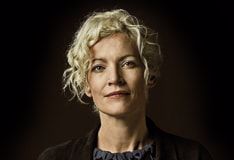
John Ferguson Professor of Global Ethics and Deputy Pro-Vice Chancellor Research
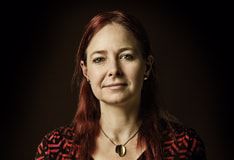
Professor of Public Engagement in Science
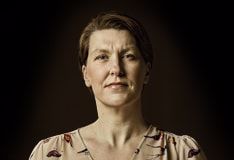
Professor of Law, Medicine, and Technology
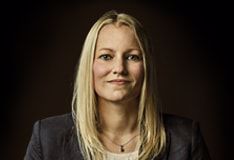
Lecturer in Pedagogy in Sport, Physical Activity and Health

Exploring the radical transformation of the status of beauty, of the beauty ideal and of what this means for how we understand human beings.
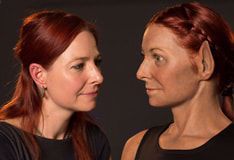
What would you change about your body, if you could re-write evolution?
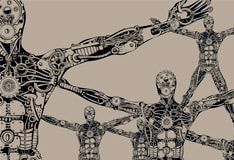
The law is ill-equipped to deal with challenges raised by the linking of the organic, biological person with synthetic, inorganic parts and devices.
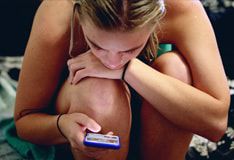
Case studies and guidelines on young people’s uses of social media
Find out more
Beauty Demands Project ➤
‘Perfect Me’ (Quest article) ➤
Beauty Demands Blog ➤
Alice Roberts' website ➤
Muireann Quigley - Research ➤
Young People, Social Media and Health (Open Access book) ➤
Learn about our other Birmingham Heroes ➤